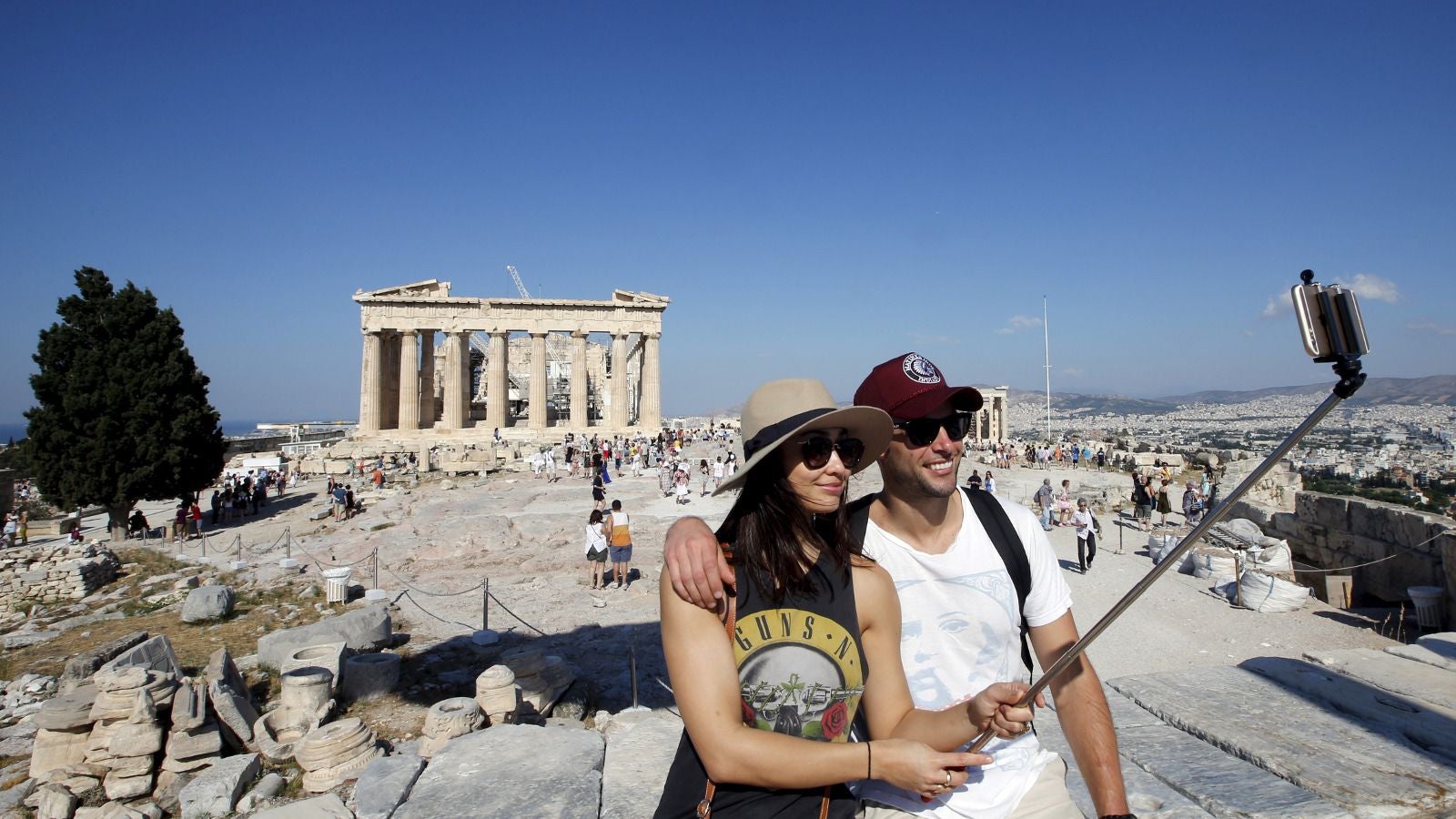Exactly what you need to know if you’re vacationing in Greece anytime soon
The Greeks have answered with a resounding ”no” to a new round of bailout funding from their creditors, and while the country’s citizens and policymakers alike are baffled by what will happen happen next, so are the hoards of tourists who were planning to visit the country and capitalize on the destination’s cheap travel deals. If you are one of the globetrotters debating whether to brave a trip to the troubled country this summer, here are some of the most important things to keep in mind.


The Greeks have answered with a resounding ”no” to a new round of bailout funding from their creditors, and while the country’s citizens and policymakers alike are baffled by what will happen happen next, so are the hoards of tourists who were planning to visit the country and capitalize on the destination’s cheap travel deals. If you are one of the globetrotters debating whether to brave a trip to the troubled country this summer, here are some of the most important things to keep in mind.
Bring extra cash—enough to cover your entire trip
A day after the referendum, Greece’s banks are still closed and ATMs are teeming with people hoping to extract their €60 ($67) maximum per day. This restriction does not apply to foreign credit or debit cards, but there have been alarming cash shortages at ATMs because of the spike in demand, and warnings of potential problems with credit-card processing. The banks will likely remain closed for the foreseeable future, so arriving with ample small bills may also help prevent kerfuffles with store owners and cab drivers who are short on change and unwilling to take credit cards, especially in destinations outside major cities.
American and British currency will buy you a lot more feta
In the wake of Greece’s “no” vote on a bailout deal with its creditors, the British pound is now 11% higher than it was a year ago, relative to the euro. Similarly, US tourists are enjoying their currency’s time in the sun. No need to rush in to take advantage of the touristic windfall, though. Both currencies should remain robust for a while, given that both Britain and the US have stressed their economies’ limited exposure to Greece.
If you bail on your Greek vacation, don’t expect a refund
The biggest hotels and tour operators in Athens say they have yet to be hit by major cancellations. In fact, travel search engine Skyscanner told Reuters searches to Greece spiked over the past few days. If you’re considering opting out to avoid the potential hassles and uncertainty, keep in mind that travel agencies, tour operators, and travel insurance policies normally only offer the option of canceling for a refund or postponing in the event of major tragedies, natural disasters, terrorism attacks, a death in the immediate family, or violent political unrest. So far, the disruptions in Greece have yet to reach that bar.
Greece is still up and running, and counting on your business
Greek tourism minister Elena Kountoura, whose economy has a lot riding on its $33 billion tourist industry this summer, told the Independent (via Time) that tourists won’t be affected in ”any way by the events and will continue to enjoy their holiday in Greece with absolutely no problem.” That’s probably true, depending on your tolerance for inconvenience. The cash crunch at ATMs and stockpiling at supermarkets should be manageable hiccups, while the worries about strikes, fuel shortages, and protests have yet to pan out. That said, it’s still worth watching your back—and your wallet—in public, and avoiding places like Syntagma Square.